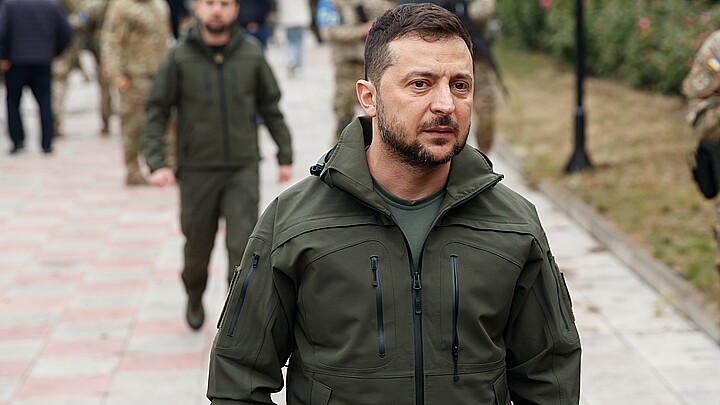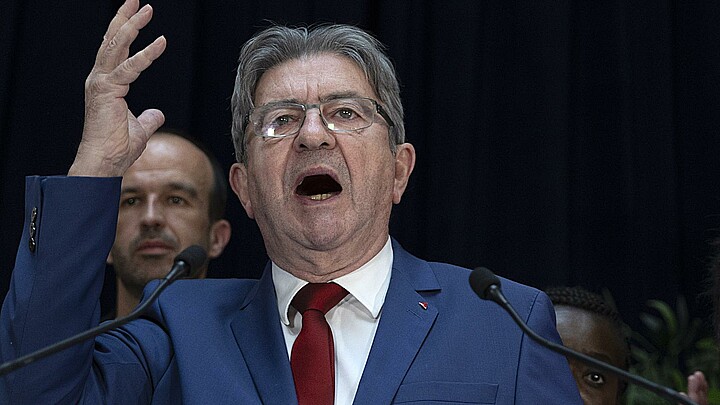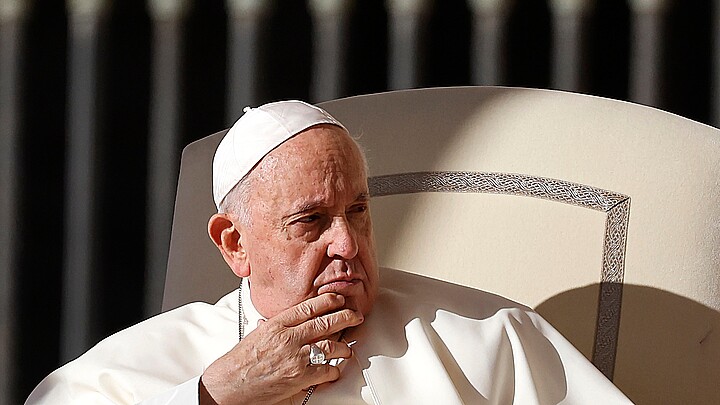Politics
Germany suspends Nord Stream 2 gas pipeline ahead of Russian invasion of Ukraine
“Now it’s up to the international community to react to this one-sided, incomprehensible and unjustified action by the Russian president," German Chancellor Olaf Scholz told reporters on Tuesday
February 22, 2022 12:03pm
Updated: February 22, 2022 1:45pm
After weeks of speculation about Berlin’s willingness to freeze the Nord Stream 2 project ahead of Russian aggression against Ukraine, Chancellor Olaf Scholz announced on Tuesday that his government will halt the gas pipeline project as the West prepares to take punitive measures against Moscow.
Scholz said the decision – which drew the ire of the Kremlin – was made in response to Russian President Vladimir Putin’s recognition of the independence of two breakaway regions in Ukraine's eastern Donbas region, a move he claimed marked a “serious break of international law,” Reuters reported.
“Now it’s up to the international community to react to this one-sided, incomprehensible and unjustified action by the Russian president,” the chancellor told reporters in Berlin, adding that it was necessary to “send a clear signal to Moscow that such actions won’t remain without consequences.”
But despite mounting pressure from Washington and Brussels, Berlin had, until now, resisted using the $11 billion project -- designed to double the flow of Russian gas direct to Germany – as a bargaining chip in the diplomatic war against Putin.
The project, after all, was meant to ease pressure on European consumers who have faced soaring energy prices as the post-pandemic economy struggles to mitigate rising inflation and supply-chain issues.
Germany, who aims to end the use of fossil fuels by 2045, currently meets approximately a quarter of its energy needs with natural gas – about half of which comes from Russia. That number is expected to increase in the coming years, however, as Berlin prepares to shutter its last three nuclear power plants and phase out the use of coal.
Markets were quick to react to Scholz’s announcement and the European benchmark gas price was up 10% to 79.28 euros per megawatt hour (MWh) on Tuesday afternoon, the AP reported.
Russia’s former president and current deputy Security Council Chairman Dmitry Medvedev took to Twitter soon after Berlin’s announcement, poking fun at the market’s reaction and what that meant for consumers on the ground.
"Welcome to the new world where Europeans will soon have to pay 2,000 euros per thousand cubic meters,” he tweeted, suggesting that prices could soon double.
Although many prominent figures within the German political world have defended the project, Scholz explained that the move was necessary in order to maintain peace in Europe.
“The situation now is fundamentally different,” Scholz said Tuesday, adding that his government had decided to withdraw which outlined the impact the pipeline would have on Germany’s gas supplies.
“That may sound technical, but it’s a necessary administrative step without which the certification of the pipeline cannot happen now,” he said.
Ukrainian Foreign Minister Dmytro Kuleba lauded Berlin for suspending the pipeline project, tweeting, “This is a morally, politically and practically correct step in the current circumstances.”
“True leadership means tough decisions in difficult times. Germany’s move proves just that.”
U.S. Ambassador to the United Nations Linda Thomas-Greenfield announced on Monday that the government would announce sanctions on today.
Tomorrow, the U.S. will impose sanctions on Russia for its violation of international law and Ukraine’s sovereignty and territorial integrity. We can, will, and must stand united in our calls for Russia to withdraw its forces, return to the diplomatic table & work toward peace.
— Ambassador Linda Thomas-Greenfield (@USAmbUN) February 22, 2022
“Tomorrow, the U.S. will impose sanctions on Russia for its violation of international law and Ukraine’s sovereignty and territorial integrity. We can, will, and must stand united in our calls for Russia to withdraw its forces, return to the diplomatic table & work toward peace,” she said on Twitter.










